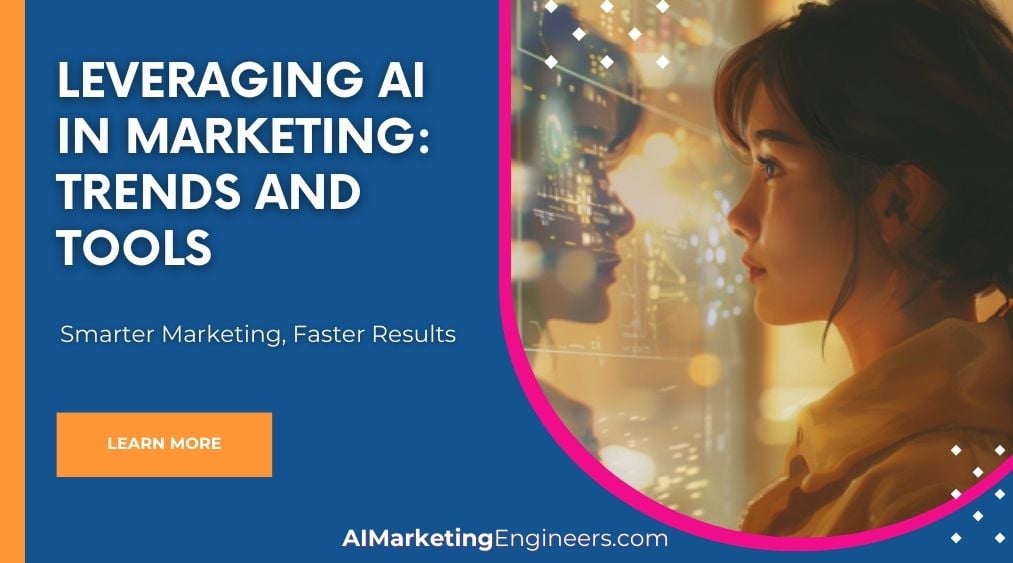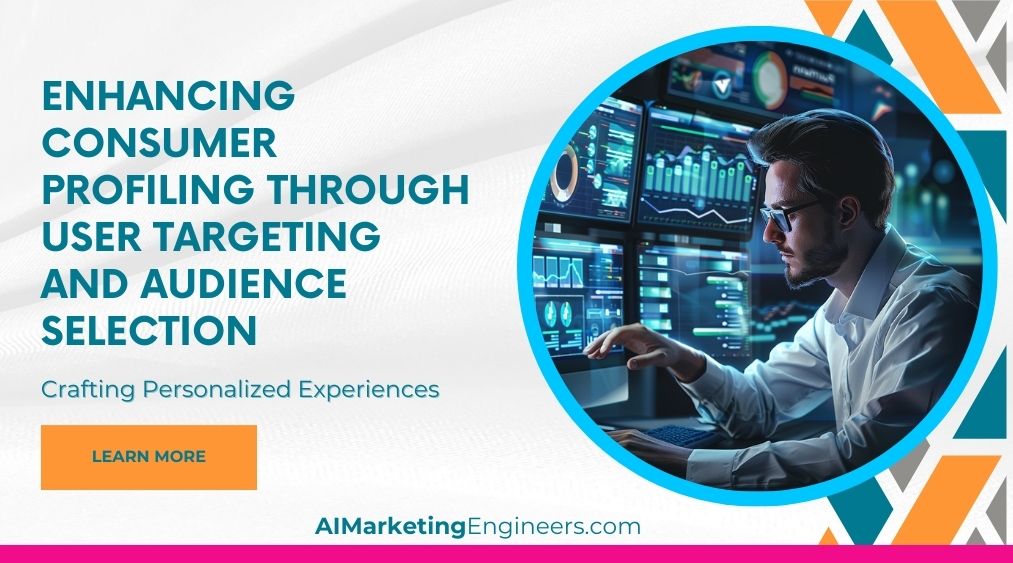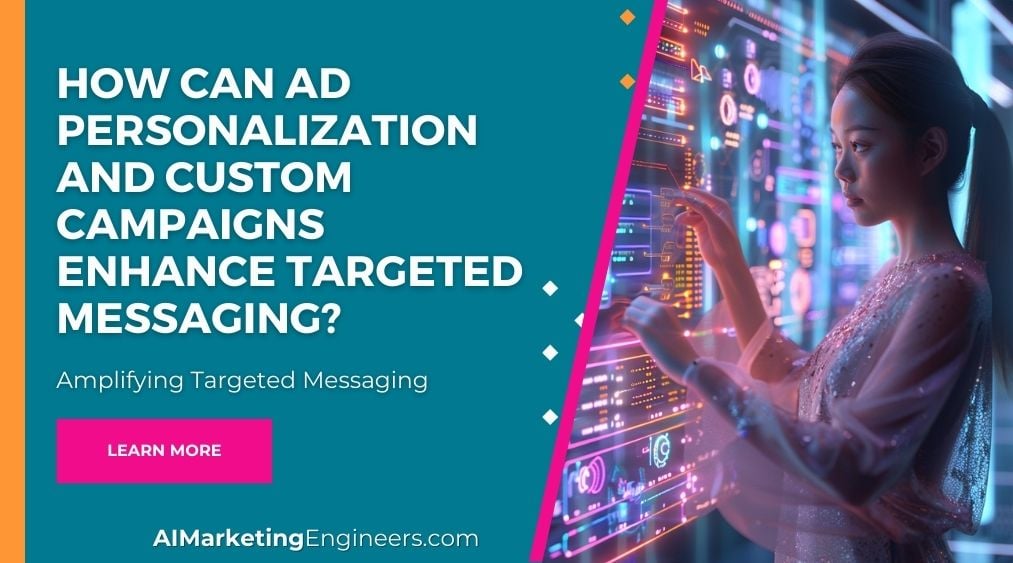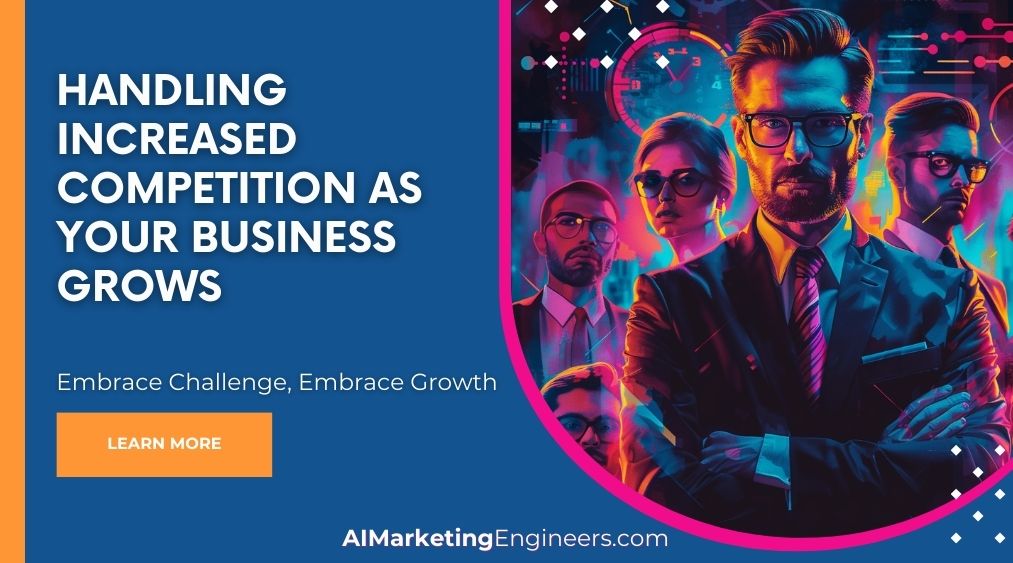Key Takeaways
✅ Personalization and Hyper-Personalization: AI is not just a buzzword; it’s a pivotal force in customizing consumer experiences. It sifts through data, learning about consumer habits and preferences to create marketing that feels like it's made just for you. Businesses using AI for personalization see an average sales lift of 6% to 10%, which is 2 to 3 times faster than those not using personalized outreach. Small ventures, take note: this technology is your ticket to leveling the playing field with larger competitors by offering unparalleled customer experiences.
✅ Operational Efficiencies and Employee Productivity: By automating mundane tasks, AI frees up your team’s time to focus on strategy and creativity. It’s like having an assistant that never sleeps, analyzing trends and predicting needs around the clock. Companies employing AI for these purposes have reported a reduction in operating costs by up to 40%. Embrace tools that handle customer segmentation, predictive analytics, and more to not only save on costs but also enhance your offerings.
✅ Importance of Human Oversight and Ethical Considerations: Despite its vast capabilities, AI cannot replace the human touch. Ethical marketing, brand authenticity, and creative storytelling require a human at the helm. Merging AI’s analytical power with human insight leads to more meaningful connections with your audience. Remember, 75% of customers prefer brands that offer personalized experiences, but they also value transparency and authenticity in how their data is used.
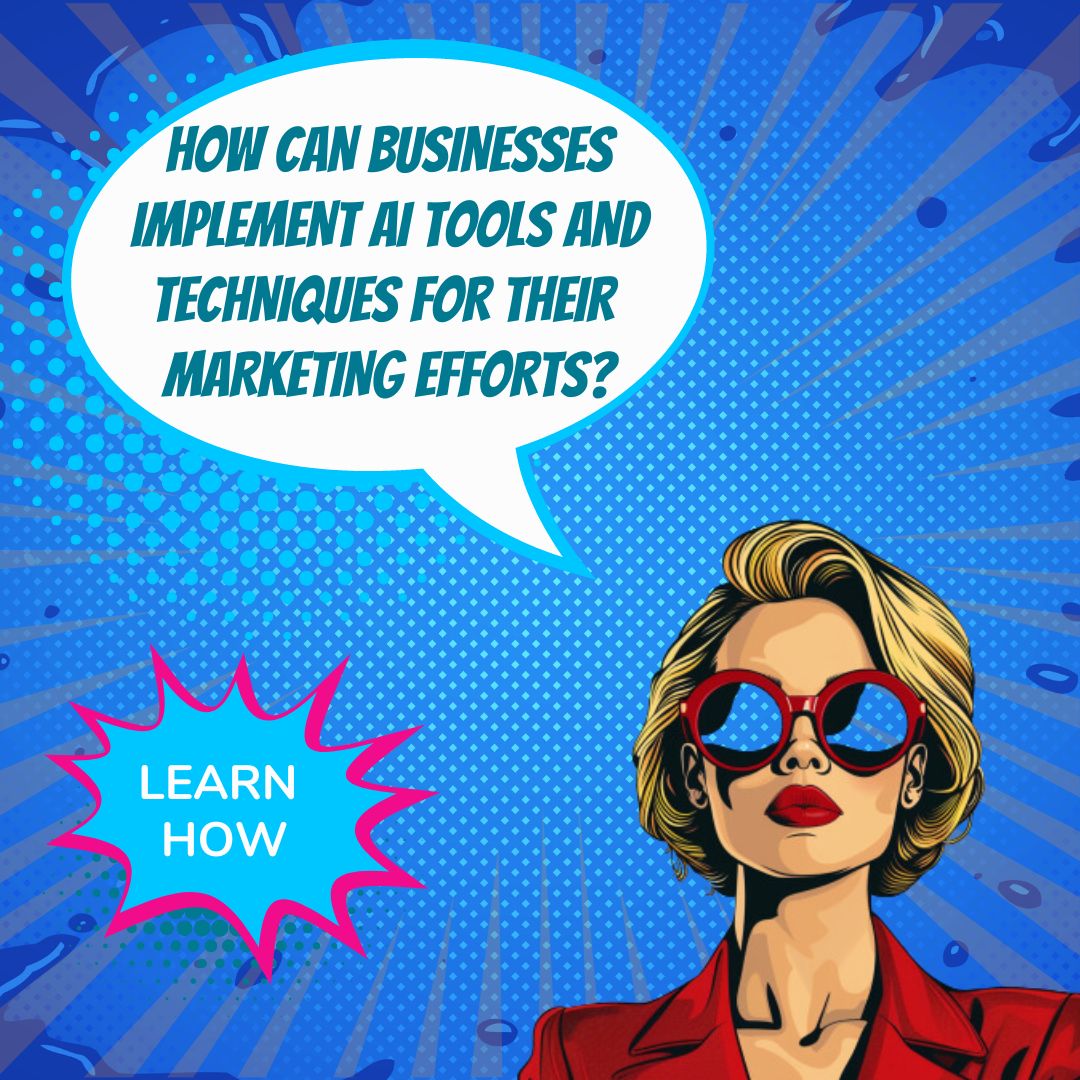
Introduction
Is your marketing strategy keeping up with the times, or are you watching the digital revolution from the sidelines? Leveraging AI in Marketing is not just an advantage; it's becoming a necessity. From understanding consumer behavior to crafting messages that resonate on a personal level, AI technologies are transforming the marketing landscape.
Boldly stepping into this new era means embracing the potent combination of AI in marketing, which unlocks a treasure trove of opportunities. Imagine predicting your customer's next move, automating time-consuming tasks, and delivering content that speaks directly to the individual – all while optimizing your marketing spend. The promise of AI extends beyond simple efficiencies; it opens the door to creating more profound, more authentic connections with your audience.
In this immersive article, we'll guide you through the cutting-edge of AI-driven marketing trends and tools, revealing how businesses like yours can harness them to not only survive but thrive. Prepare to dive deep into actionable insights and groundbreaking information that could redefine your marketing strategy and skyrocket your ROI. Let's embark on this journey together and explore how AI can revolutionize your approach to marketing.
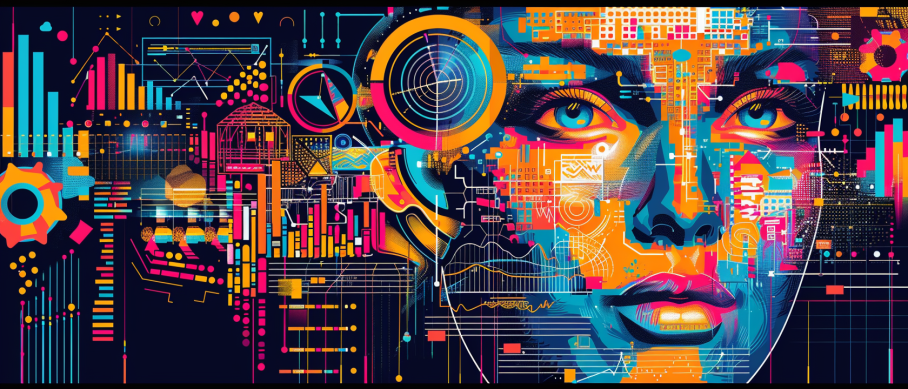
Top Statistics
| Statistic | Insight |
|---|---|
| 91% of businesses believe AI is essential for their marketing strategy | This high percentage underscores the critical role of AI in shaping future marketing landscapes and enhancing customer experiences. |
| 35% of businesses use AI | With a third of businesses already on board, this statistic signals a growing trend and a competitive edge for early adopters. |
| 74% of marketers expect more than a quarter of their tasks to be intelligently automated in the next five years | This anticipation of increased AI integration highlights the importance of preparing for an automated future, optimizing efficiency and innovation. |
| 71% of consumers expect personalization from businesses they interact with | A powerful reminder that personalized experiences are not just preferred but expected by today’s consumers, emphasizing the role of AI in mining data for personalized marketing campaigns. |
| AI-powered personalization can boost engagement and improve conversion rates | This points towards the tangible benefits of AI in marketing, specifically in enhancing interactions with consumers and directly impacting the bottom line. |
AI's Role in Transforming Marketing
Imagine a world where every ad you see, every email you get, and every product recommendation you receive feels like it was tailored just for you. This isn't a far-off fantasy; it's the everyday reality of AI in marketing. AI, or artificial intelligence, is reshaping how businesses connect with customers by making marketing more personal, efficient, and impactful.
The technology behind this transformation includes machine learning (ML), natural language processing (NLP), and computer vision. These AI tools analyze data in ways humans can't, spotting patterns and making predictions at lightning speed. For marketers, this means being able to understand and anticipate customer needs like never before.

Trends Shaping AI-Driven Marketing
With AI, personalized marketing is advancing rapidly. AI uses data to segment customers more accurately and tailor messages that resonate on a personal level. For example, Netflix's recommendations keep viewers glued to their screens by suggesting what to watch next, based on their viewing history and preferences.
Predictive analytics is another game-changer. It can forecast which customers might leave (churn) and pinpoint those likely to become valuable long-term patrons. This insight helps businesses focus their efforts and resources wisely.
Content generation has also seen a revolution with AI. Tools powered by natural language processing draft emails, create ad copy, and even write blog posts, saving marketers time and optimizing messages for better engagement.
On the visual side, computer vision is allowing brands to analyze images and videos to gauge brand perception and influence. Social media images containing a product can be automatically identified and analyzed, offering real-time insights into how a brand is being visually represented online.
Key Technologies Making a Difference
Machine learning stands at the forefront of AI in marketing. It powers those nifty personalized recommendations and customer segmentation, making marketing efforts more targeted than ever. Moreover, it fuels predictive analytics, helping predict trends and customer behaviors with astonishing accuracy.
Natural language processing is the wizard behind the curtain for content generation, sentiment analysis, and customer service chatbots. It interprets and processes human language, making interactions between computers and humans feel seamless and natural.
Computer vision goes beyond words, understanding and interpreting visual content. This opens up new avenues for analyzing brand engagement and customer sentiment through images and videos.
Predictive analytics takes the guesswork out of marketing. By anticipating customer churn, identifying high-value customers, and even predicting future trends, it empowers marketers to act proactively rather than reactively.
Real-World Applications and Tools
AI's practical applications in marketing are growing by the day. From launching multilingual campaigns that speak to a global audience to conducting advanced A/B testing for optimal message effectiveness, AI's footprint is expanding.
The tool landscape is rich and varied, offering solutions for different needs. Jasper AI excels in copywriting, while Lexica Art and PhotoRoom enhance visual content. Surfer SEO optimizes content for search engines, and Chatfuel automates engaging customer interactions.
Predictive analytics tools, like some features within Albert.ai, transform raw data into actionable insights, helping marketers predict and influence customer actions more effectively.
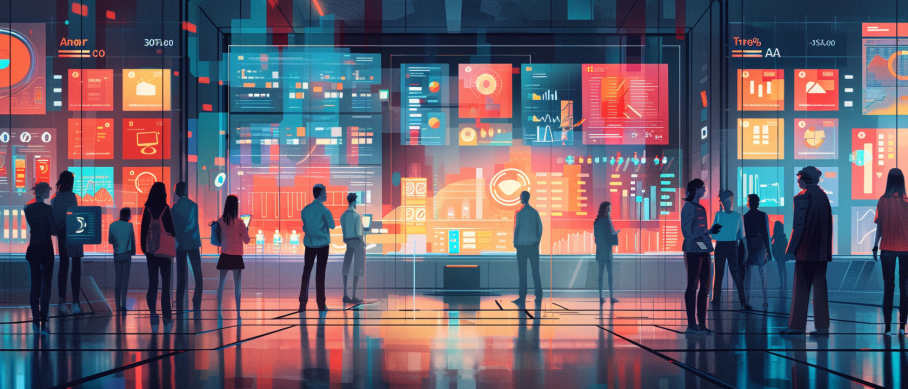
Navigating Challenges for Greater Success
Yet, with all its marvels, AI in marketing isn't without challenges. Data quality is paramount; garbage in equals garbage out. Marketers must ensure the data feeding their AI tools is accurate and relevant.
Avoiding common pitfalls, such as data bias and an over-reliance on automation, is crucial. Marrying AI's capabilities with human intuition and creativity leads to the most successful outcomes. Transparency and ethical considerations must also be top of mind, ensuring trust and respect in consumer relationships.
Combining Tools and Strategies for Impact
The best strategies for AI in marketing hinge on balancing innovative tools with strategic insight. Integrating AI tools like Jasper AI for writing, Grammarly for editing, and Zapier for task automation, with a keen focus on creativity, can elevate marketing campaigns to new heights.
Effective AI marketing isn't just about using the tools; it's about weaving them into a coherent strategy that prioritizes data quality, ethical use of technology, and a personal touch that resonates with customers on a human level.
In the world of marketing, AI is more than a buzzword; it's a powerful ally. As technology advances, so too does the opportunity for businesses to connect with their customers in more meaningful ways. Marketers willing to embrace AI, with an eye on both its vast capabilities and its limitations, are the ones who will craft the future of personalized, impactful marketing.

AI Marketing Engineers Recommendation
Recommendation 1: Utilize AI-driven analytics for deeper customer insights: Embracing AI for deeper customer insights can transform how you understand and interact with your audience. With 63% of businesses reporting increased revenue after implementing AI-based analytics, the message is clear: AI unlocks a deeper level of consumer understanding. By analyzing patterns and behaviors at scale—something human analysts could never do as quickly or accurately—AI tools can predict future buying behaviors, optimize campaign targeting, and personalize customer experiences. Incorporate tools like Google Analytics' advanced machine learning features to uncover trend insights that can guide your marketing strategy.
Recommendation 2: Implement AI chatbots for enhanced customer service and engagement: Chatbots have moved from a nice-to-have to a necessity in customer service. An overwhelming 80% of businesses are expected to have some form of chatbot automation by the end of this year. AI-powered chatbots can handle inquiries in real-time, 24/7, providing immediate responses and improving customer satisfaction. Furthermore, they collect valuable data on customer preferences and issues, which can inform product development and marketing strategies. Platforms like Chatfuel and ManyChat offer powerful, user-friendly chatbot solutions that can be integrated into your website or social media channels without hefty development costs.
Recommendation 3: Leverage AI content creation tools to scale up content marketing efforts: With content marketing being more important than ever, AI content creation tools are revolutionizing the way brands produce content. AI can help produce high-quality, engaging content at scale, addressing the challenge of keeping up with the demand for fresh material. Tools like Jasper (formerly Jarvis) and Copy.ai use natural language processing (NLP) to assist in crafting compelling copy for blogs, social media posts, and more. According to Gartner, AI-generated content can potentially double your content marketing output, significantly boosting your SEO and engagement metrics without a proportional increase in effort or resources.
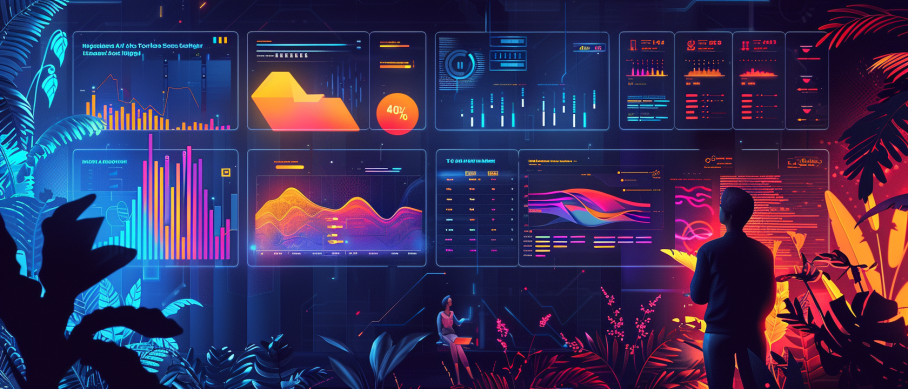
Conclusion
As we stand on the brink of a marketing revolution powered by artificial intelligence (AI), it's clear that the way we engage with customers, personalize content, and predict future trends is undergoing a fundamental transformation. The journey through AI's impact on marketing, from its basics to the cutting-edge tools and strategies, has shown that the potential for brands to connect with their audience in more meaningful and efficient ways is immense. AI is not just a buzzword or a distant future; it's here, reshaping marketing with personalization, predictive analytics, and enhanced customer experiences.
The insights from leveraging AI in marketing reveal a landscape where machine learning, natural language processing, and computer vision are no longer just technical terms but essential tools for understanding and engaging customers. Trends such as personalization engines and recommendation systems offer glimpses into a future where every customer interaction is informed by deep insights and an acute understanding of individual preferences.
However, with great power comes great responsibility. The challenges of data quality, accessibility, and ethical considerations remind us that as we embrace these new tools, we must tread carefully, ensuring we use AI to enhance, not diminish, the human experience. The examples of AI-powered tools, from Jasper AI's copywriting brilliance to Chatfuel's chatbots, highlight not only the diversity of applications but also the potential for creative and innovative marketing strategies.
As we look to the future, the call to action for marketers is clear: embrace AI, but do so with intention, foresight, and a steadfast commitment to ethical practices. Whether you're a seasoned marketing professional or just starting, the trends and tools discussed offer a roadmap for navigating the exciting landscape of AI in marketing. It's not just about keeping pace with technology but using it to forge deeper, more meaningful connections with customers. The potential is limitless, and the time to act is now. Let's embark on this journey together, with a keen eye on both the immense opportunities and the responsibilities it brings.
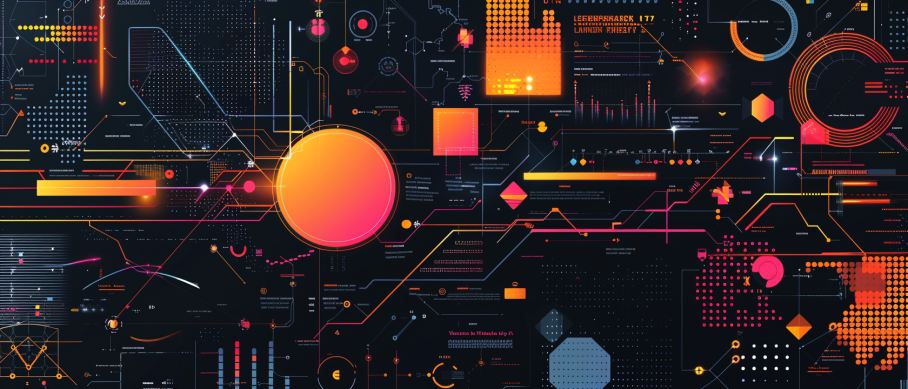
FAQs
Question 1: What are the best practices for integrating AI into my overall marketing strategy?
Answer: You're looking at starting small but thinking big. Aim to understand your goals crystal clear, use AI to personalize the user journey bit by bit, email your hearts out with a touch of AI magic, and make interactions simpler with chatbots. Start with a couple of tools and then, as you find your footing, expand your toolkit.
Question 2: What is generative AI, and how can it benefit my marketing organization?
Answer: Generative AI is like your creative assistant, crafting text and images that can match a variety of styles and needs, all from a simple prompt. Imagine delivering content that feels personally crafted for every single customer, at scale. That's the power it brings to the table.
Question 3: How can AI be used in marketing?
Answer: AI's like the smart cookie in the room, making decisions by observing your audience closely and understanding the trends. It’s all about getting closer to your audience, understanding their needs, and delivering value.
Question 4: What are the potential risks and limitations of using AI in marketing, and how can I mitigate them?
Answer: It's not all sunshine; AI might miss the mark in catching your brand's voice or understanding cultural nuances. The key? Set guidelines, know your brand inside out, and always keep humans in the loop.
Question 5: How can generative AI help keep the customer first?
Answer: Keep tweaking your AI to learn from customer behaviors and wishes as if it were reading their minds. Trust and ethics are your best friends here, ensuring the AI remains a force for good.
Question 6: How can AI help enhance and support creative talent in my
organization?
Answer: Think of AI as your brainstorming partner, tossing ideas back and forth but never taking the driver's seat. It's there to inspire, not to replace.
Question 7: How can I measure the effectiveness of AI in connecting with customers?
Answer: Keep an eye on engagement, conversions, and how satisfied your customers feel. These are the breadcrumbs that tell you if AI is really speaking their language.
Question 8: How can I ensure that AI outputs are trustworthy and ethical?
Answer: Dive deep into AI ethics, put your customers' privacy first, and always have a human peeking over the AI's shoulder.
Question 9: Will AI replace human marketers?
Answer: AI's here to make marketers' lives easier, not to replace them. Humans are still at the heart of creating resonant messages and stirring emotions.
Question 10: How can I leverage AI for content repurposing?
Answer: Let AI take your content and reframe, reshape, and repurpose it, saving you time while keeping your message strong across channels.
Question 11: How can I steer AI-powered campaigns more effectively?
Answer: Marry your strategic nous with AI’s capabilities. Feed it the right audience insights, and watch it work wonders in targeting.
Question 12: What are the key benefits of using AI in marketing?
Answer: AI is the wind beneath your digital wings, powering automation, dishing out deep insights, and personalizing like a boss, all to connect deeper with your audience.
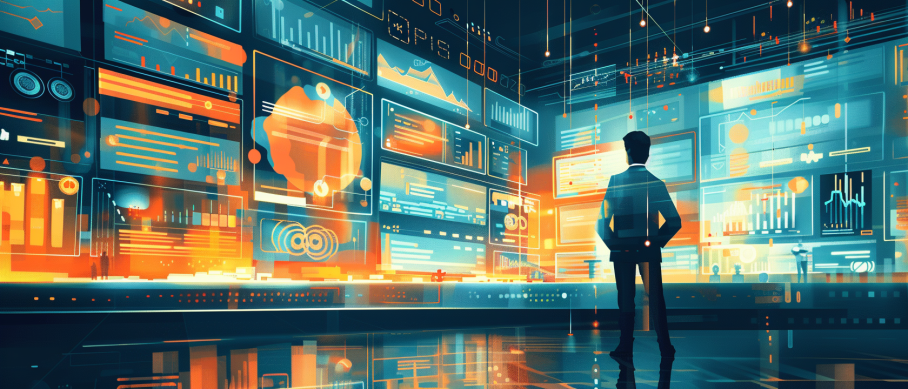
Academic References
- McKinsey & Company. (2020). The Quickening. McKinsey & Company. This comprehensive report unveils that 71% of consumers expect personalization from businesses, emphasizing the urgent need for companies to adopt AI-driven personalization strategies to enhance user experiences and conversion rates.
- Columbus, L. (2018). 10 Ways Machine Learning Is Revolutionizing Marketing. Forbes. This article discusses the various ways AI-driven analytics tools speed up and refine data analysis by extracting valuable insights from large datasets, significantly outperforming human capabilities in both speed and accuracy.
- Davenport, T. H., & Ronanki, R. (2018). Artificial Intelligence for the Real World. Harvard Business Review. This publication outlines the practical applications of AI in business, including the scaling up of content production through AI, automating processes, and accelerating content creation to meet fast-evolving market requirements.
- Chaffey, D. (2019). Artificial Intelligence for Marketing: Practical Applications. Wiley. This book provides in-depth coverage on the deployment of AI in social media advertising, detailing how AI optimizes ad campaigns to improve targeting and engagement.
- Kietzmann, J., Paschen, J., & Treen, E. (2018). Artificial intelligence in advertising: How marketers can leverage artificial intelligence along the consumer journey. Journal of Advertising Research, 58(4), 423-432. This article explores various AI marketing tools that can enhance marketing efforts, from automating tasks to providing data-driven insights and improving customer interactions, driving better marketing results and return on investment.
- Feine, J., Gnewuch, U., Morana, S., & Maedche, A. (2019). A taxonomy of social cues for conversational agents. International Journal of Human-Computer Studies, 132, 138-161. The study delves into the functionality and impact of AI-powered chatbots in enhancing customer engagement through instant support and handling routine queries, offering a seamless and responsive experience.
- Bughin, J., Hazan, E., Ramaswamy, S., Chui, M., Allas, T., Dahlström, P., Henke, N., & Trench, M. (2017). Artificial Intelligence, The Next Digital Frontier? McKinsey Global Institute. This report investigates the application of AI in market analysis, emphasizing how AI technologies can dissect vast amounts of data including customer behaviors, market trends, and competitor actions, to equip businesses with deep insights for informed decision-making.
